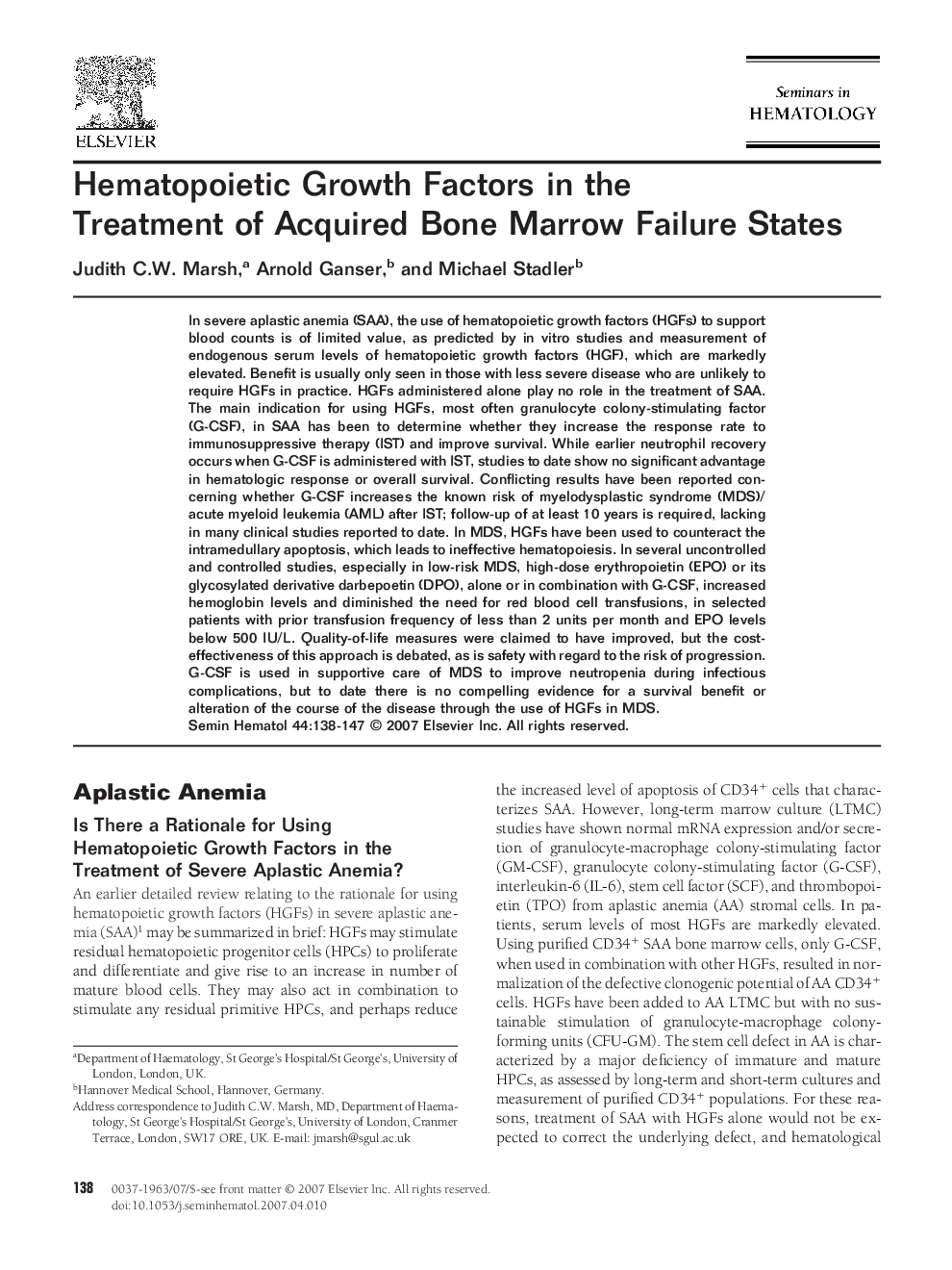| Article ID | Journal | Published Year | Pages | File Type |
|---|---|---|---|---|
| 3334203 | Seminars in Hematology | 2007 | 10 Pages |
In severe aplastic anemia (SAA), the use of hematopoietic growth factors (HGFs) to support blood counts is of limited value, as predicted by in vitro studies and measurement of endogenous serum levels of hematopoietic growth factors (HGF), which are markedly elevated. Benefit is usually only seen in those with less severe disease who are unlikely to require HGFs in practice. HGFs administered alone play no role in the treatment of SAA. The main indication for using HGFs, most often granulocyte colony-stimulating factor (G-CSF), in SAA has been to determine whether they increase the response rate to immunosuppressive therapy (IST) and improve survival. While earlier neutrophil recovery occurs when G-CSF is administered with IST, studies to date show no significant advantage in hematologic response or overall survival. Conflicting results have been reported concerning whether G-CSF increases the known risk of myelodysplastic syndrome (MDS)/acute myeloid leukemia (AML) after IST; follow-up of at least 10 years is required, lacking in many clinical studies reported to date. In MDS, HGFs have been used to counteract the intramedullary apoptosis, which leads to ineffective hematopoiesis. In several uncontrolled and controlled studies, especially in low-risk MDS, high-dose erythropoietin (EPO) or its glycosylated derivative darbepoetin (DPO), alone or in combination with G-CSF, increased hemoglobin levels and diminished the need for red blood cell transfusions, in selected patients with prior transfusion frequency of less than 2 units per month and EPO levels below 500 IU/L. Quality-of-life measures were claimed to have improved, but the cost-effectiveness of this approach is debated, as is safety with regard to the risk of progression. G-CSF is used in supportive care of MDS to improve neutropenia during infectious complications, but to date there is no compelling evidence for a survival benefit or alteration of the course of the disease through the use of HGFs in MDS.
